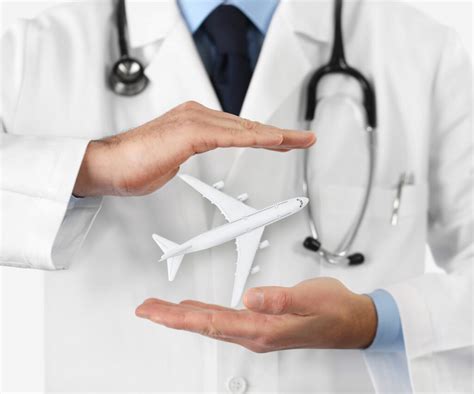5 Travel Clinic Tips

Introduction to Travel Clinics
When planning a trip abroad, it’s essential to consider the health risks associated with traveling to foreign countries. Travel clinics play a vital role in preparing travelers for their journeys by providing necessary vaccinations, medications, and advice on how to stay healthy while traveling. In this article, we will discuss five travel clinic tips to help you make the most of your visit.
Tip 1: Research and Choose a Reputable Travel Clinic
Before selecting a travel clinic, it’s crucial to do your research. Look for clinics that are affiliated with reputable organizations, such as the International Society of Travel Medicine (ISTM) or the American Society of Tropical Medicine and Hygiene (ASTMH). These clinics will have experienced staff and access to the latest information on travel health. You can also ask for referrals from friends, family, or your primary care physician. Make sure to check the clinic’s credentials and read reviews from previous clients.
Tip 2: Schedule Your Appointment Well in Advance
Travel clinics can be busy, especially during peak travel seasons. It’s recommended to schedule your appointment at least 4-6 weeks before your trip to ensure that you can get an appointment and allow time for any necessary vaccinations to take effect. Some vaccinations, such as the rabies vaccine, require multiple doses spaced out over several weeks. Don’t wait until the last minute to schedule your appointment, as this can limit your options and increase the risk of not being fully protected against certain diseases.
Tip 3: Be Prepared for Your Appointment
To get the most out of your travel clinic visit, it’s essential to be prepared. Bring a copy of your itinerary, including your travel dates, destinations, and any planned activities. This information will help the clinic staff determine the necessary vaccinations and medications for your trip. You should also bring any relevant medical records, such as a list of your current medications or any pre-existing medical conditions. Be honest and open with the clinic staff about your health and travel plans, as this will help them provide you with the best possible advice and care.
Tip 4: Ask About Vaccinations and Medications
Travel clinics offer a range of vaccinations and medications to protect against various diseases. Be sure to ask about the following: * Routine vaccinations: Make sure you are up-to-date on all routine vaccinations, such as MMR, DTaP, and polio. * Travel-specific vaccinations: Depending on your destination, you may need vaccinations against diseases such as hepatitis A, typhoid, or yellow fever. * Medications: The clinic may prescribe medications to prevent or treat conditions such as malaria, altitude sickness, or traveler’s diarrhea. * Vaccination schedules: Some vaccinations require multiple doses or boosters, so be sure to ask about the recommended schedule.
Tip 5: Follow Post-Travel Instructions
After your trip, it’s essential to follow any post-travel instructions provided by the travel clinic. This may include: * Follow-up appointments: Schedule a follow-up appointment with the travel clinic to ensure that you are not experiencing any adverse reactions to vaccinations or medications. * Monitoring for diseases: Be aware of the symptoms of diseases such as malaria or dengue fever, and seek medical attention immediately if you experience any symptoms. * Preventing insect-borne illnesses: Continue to take precautions against insect-borne illnesses, such as wearing insect repellent and wearing protective clothing.
| Vaccination | Description | Recommended for |
|---|---|---|
| Hepatitis A | Protects against hepatitis A virus | All travelers to developing countries |
| Typhoid | Protects against Salmonella Typhi bacteria | Travelers to areas with poor sanitation and hygiene |
| Yellow Fever | Protects against yellow fever virus | Travelers to areas with a risk of yellow fever transmission |
💡 Note: Always consult with a travel clinic or healthcare professional to determine the necessary vaccinations and medications for your specific travel plans.
In summary, travel clinics play a crucial role in preparing travelers for their journeys by providing necessary vaccinations, medications, and advice on how to stay healthy while traveling. By researching and choosing a reputable travel clinic, scheduling your appointment well in advance, being prepared for your appointment, asking about vaccinations and medications, and following post-travel instructions, you can ensure a safe and healthy trip.
What is the purpose of a travel clinic?
+
The purpose of a travel clinic is to provide travelers with the necessary vaccinations, medications, and advice to stay healthy while traveling abroad.
How far in advance should I schedule my travel clinic appointment?
+
What should I bring to my travel clinic appointment?
+
You should bring a copy of your itinerary, including your travel dates, destinations, and any planned activities, as well as any relevant medical records, such as a list of your current medications or any pre-existing medical conditions.